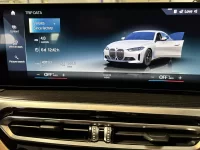After getting my Lucid, which I simply love, I am now helping my eldest daughter in selecting the EV which best fits her needs. The Chevy Bolt EUV has caught her eye and it is something that she can afford. She is a single mom with two adopted little ones. I must say, the more I research this car, the more impressed I am. Chevy has created an entry level car that is very remarkable for those who wish to get in the EV side of cars and needs a car for local driving. At under $30,000 for the base EUV model, Chevy should capture this side of the market. What really impresses me is the mi/kWh effeciency it actually gets. While my Lucid is rated at 4.6 mi/kWh, I have never achieved anything close to that. After 6000 miles, the best I have been able to get in a measured 90 mile drive is 4.1. My typical mileage efficiency before the cold weather has set in was between 3.3 to 3.7. I tend to drive about 5 to 10 mph over the speed limit.
However, I just watched a YouTube video ( to see it, just click HERE) of a older fellow who drove his Bolt over 2000 miles from Ohio to Las Vegas getting 4.6 mi/kWh on a number of his legs. He achieved an average of 4.0 over the complete trip. He did keep his speed to just 65 mph. He noted that headwinds were a killer on his mileage efficiency, which I what I also have noted...along with low temperatues, driving fast and going up elevations. I guess he can get his efficiency because the Bolt is less than half the weight of my Lucid and he kept his speed down.
Besides just being a basic, entry car, its main shortcoming is that it fast charges at only 55 kW so it takes a long time to charge, making it not an ideal vehicle for long trips. Nevertheles, this fellow did in!
However, I just watched a YouTube video ( to see it, just click HERE) of a older fellow who drove his Bolt over 2000 miles from Ohio to Las Vegas getting 4.6 mi/kWh on a number of his legs. He achieved an average of 4.0 over the complete trip. He did keep his speed to just 65 mph. He noted that headwinds were a killer on his mileage efficiency, which I what I also have noted...along with low temperatues, driving fast and going up elevations. I guess he can get his efficiency because the Bolt is less than half the weight of my Lucid and he kept his speed down.
Besides just being a basic, entry car, its main shortcoming is that it fast charges at only 55 kW so it takes a long time to charge, making it not an ideal vehicle for long trips. Nevertheles, this fellow did in!

